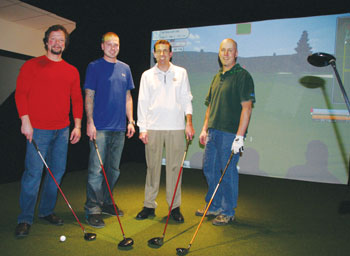It’s a new beginning for Wheatland Family and Community Support Services (WFCSS). As of February 4, WFCSS opened the doors to its new location at the Wheatland County Office.
The move was required after the Town of Strathmore announced in July 2012 it would be pulling out of WFCSS to form its own program.
Since the announcement, there had been uncertainty over what direction WFCSS would take. At a recent board meeting, it was decided that to move forward, they must determine the needs of a more rural program.
“We’ll be taking a look at what we can do to move forward. One of the main things the board talked about during this transition phase is we want our staff get out and meet the residents in Wheatland County, learn what residents want out of a more rural FCSS program, and let everyone know we’re here,” said Darcy Burke, chair of WFCSS.
The goal is to eventually create a program on par with or even better than before. An advantage of the new WFCSS will be a focus on Wheatland residents.
“When they (Strathmore) were still a part of WFCSS, a large part of our programming and our time was spent in Strathmore. There was nothing wrong with that, but maybe our rural communities weren’t as high a priority. This will give us a chance to spend more time looking after our rural residents,” said Burke.
However, there are challenges as a result of the split. WFCSS has lost a considerable portion of its staff.
“Around 90 per cent of our home support program was utilized by the Town of Strathmore, so the bulk of our home support staff became employees for the new Strathmore FCSS program. Some chose not to, but there was the opportunity there for them to take up employment with Strathmore,” said Burke.
In addition to reduced staffing levels, funding has also been reduced. Before, the Town of Strathmore contributed funding and, because there were more users, the province provided more money. Now, WFCSS has lost the money provided by Strathmore and provincial funding has been reduced.
However, the reduced funding does not necessarily translate to reduced services.
“The same dollars are there for this area, but have now been split between the two FCSS programs, so Wheatland still has the same funding,” said Burke.
It’s been a challenging few months, but WFCSS is ready to move forward. There is still much left to do.
“Our transition phase, I think, will last all of this budget year, but at the end of the day, I think both parties will go on and provide the best services they can for their residents,” said Burke.


 For this week only the Royal Tyrrell Museum’s Speaker Series has changed from Thursday, to Friday, February 8 at 11 a.m.
For this week only the Royal Tyrrell Museum’s Speaker Series has changed from Thursday, to Friday, February 8 at 11 a.m.





